- Make It Yourself Lavender Heart-Shaped Bath Bombs!
- 20 Things You Never Knew About “Down There”
- 12 Best Foods For Those Suffering From Arthritis Pain
- 12 Personal Hygiene Mistakes Almost Everyone Makes (Mom Never Told You About #4!)
- 15 Medicinal Plants And Herbs From The Cherokee People
- 12 Mind-Blowing Benefits Of Drinking Coconut Water During Pregnancy
- 12 Outstanding Winter Foods That Won’t Fatten You Up Like A Christmas Turkey
5 Dangerous Foods That Really Aren’t
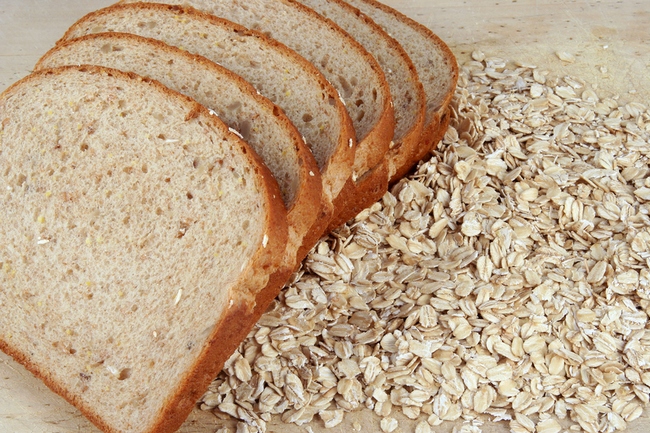
Photo credit: bigstock.com
Depending on your age you probably grew up with some erroneous food “facts.” Fat is bad. Butter is bad. Vegetable oils are good. Sugar is bad. Marijuana is the devil! Well, ok, maybe not the last one because it isn’t considered to be food, but you get the idea. Some of those things are true, others aren’t but that doesn’t mean that everyone has jumped on the new information about food bandwagon.
For example, the idea that fat is what makes us fat was never based on any real scientific evidence and now has been proven, over and over, to be false. When you look past all the anti-fat propaganda that is out there and all the hysteria over some types of foods (such as meat or gains) then you can do some research into what is true,
We have a good start for you here. Read on about 5 foods that have been demonized as “dangerous foods” and find out the truth. Nope, no demons here.
1. Grains
Let’s be upfront right off the bat, shall we? Some people are intolerant to grains. That’s a fact. Some people are intolerant of nuts, strawberries, and seafood also, but you don’t see people demonizing those foods. Grains are a super-hot topic right now and it makes sense, since Americans consume huge quantities of grain, both directly and indirectly. We consume grains directly when we eat them via breads, cereals, pasta, and by themselves. If you consume meat, animals also eat grains. We then consume these grains indirectly.
Some people are very sensitive to gluten, which is a substance found in wheat and other grains. You should always listen to your body as to what works best for you, not what some celebrity or television doctor tells you what is good for you. Grains, in and of themselves, don’t make us fat. You probably know plenty of people who eat grains who are muscular, lean, and healthy. It’s what we do to grains (smothering them in heavy creams sauces, baking them and filling them with sugar) that make us fat.
Did someone tell you that grains contain toxins? The truth of the matter is that almost everything we consume in this world contains toxins. Yep, even the organic stuff. Although organic foods have less, that doesn’t mean that they don’t have any. Our ancestors didn’t live on fruit and meat alone, friends. Chances are very good that they ate whatever was on hand: nuts, seeds, roots, grains, leaves, bark, and bugs.
If grains bother you, then don’t eat them. But if you have removed grains from your diet and you still have health problems or don’t feel right, you need to look elsewhere.
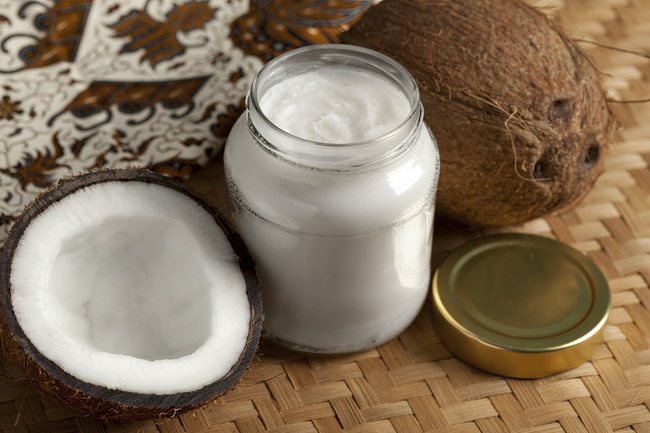
Photo credit: bigstock.com
2. Coconut Oil
Although coconut oil is currently all the rage, if you are old enough, you might remember that fast food places and restaurants used to use coconut oil. But when it was discovered that this oil was 90 percent saturated fat, this natural food was also demonized. Remember the signs out front of many restaurants proclaiming that “We Only Use Wholesome Vegetable Oil.” Wow, was that ever a mistake.
Coconut oil is a very unique type of fat, with about 90 percent of it being saturated fat, but in a different form. The fat in coconut oil is a medium chain triglyceride or MCT. These kinds of fats are metabolized by the body differently than the longer chain fats, which go right to our livers. They are then used for energy, or turned into ketones. The fats from coconut oil are a more immediate sources of energy. Also, half of the fatty acids in this natural oil are lauric acid, which are known to be highly efficient killers of pathogens in the body.
One study showed that when overweight women consumed coconut oil, they increased their levels of “good” cholesterol and lowered their bad cholesterol levels. Try doing that with canola oil!
The fats in coconut oil can also help you to lose weight. As we mentioned earlier, the body metabolizes these fats in a different manner, leading to an increase in the expenditure of energy. Studies have shown that replacing longer chain fats, such as canola or corn oil, with coconut oil can improve feelings of satiety and reduce food consumption overall.
For best results, always buy coconut oil in its most natural form, which is virgin coconut oil.
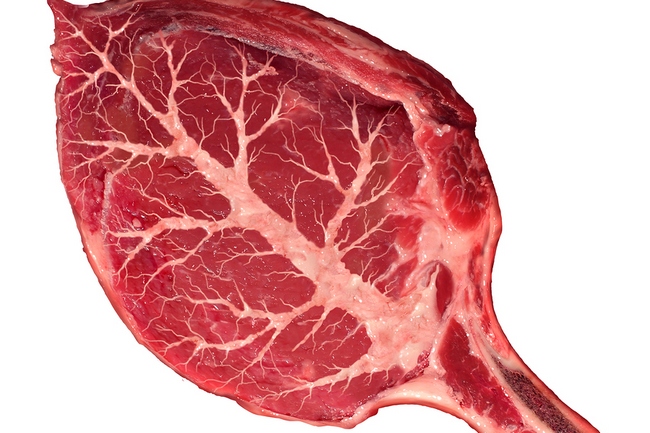
Photo credit: bigstock.com
3. Meat
Unfortunately, too many people today think that meat is somehow unhealthy for us. Someone neglected to tell our ancestors and the Native American people this. As a species, humans have evolved naturally as omnivores, eating whatever we could get our hands on to survive. Although the consumption of large amounts of meat is unhealthy, the absence of it can also cause health problems.
When you look past the hype, you will find a real food source that has vital nutrients for human health. Why has meat been demonized this way?
Well, the truth of the matter is, meat is not what it once was. Back in the day, animals roamed free, eating a natural diet in a clean environment. Cows ate grass and seeds. Chickens ate bugs and seeds. Now these animals are cooped together so tightly that they live in filthy conditions that breed disease, so they are given unhealthy doses of antibiotics. They are fed commercial food that is anything but healthy and they are often given hormones to increase their meat or milk production. Read more why you should switch to grass fed meat.
Meat from free range, grass fed cows is very healthy for human consumption. Grass fed beef has more healthy omega-3 fatty acids and less omega-6, more CLA (conjugated linoleic acid) which has been shown to reduce body fat in humans, and has tons of vitamins, including A and E, both of which are important for brain health. Meat also contains a great deal of nutrients that you can’t get from plants including B12, creatine, vitamins K2 and D3, carnosine, and many more.
In a gigantic study done in 2012 that involved more than 1.2 million people, moderate amounts of beef had no association with heart disease or diabetes.
Can you live without meat? Of course. But you can live a more healthy life by eating grass fed, free-range meat in moderation.
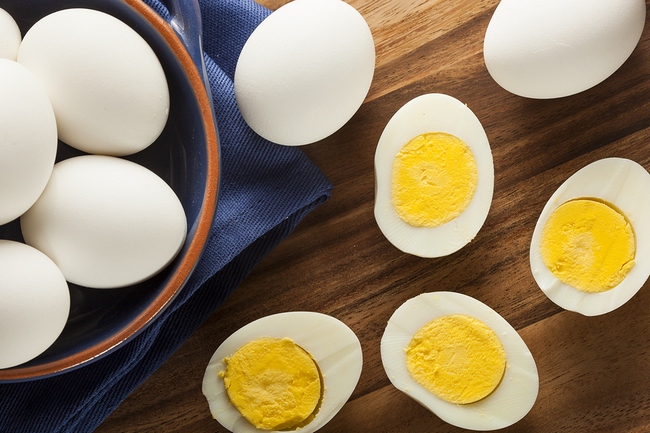
Photo credit: bigstock.com
4. Eggs
This is another food that has gotten such a bad rap and it doesn’t deserve it at all. Eggs are actually a miracle of nature. That little orb contains everything it needs to turn one cell into an entire baby chicken.
You might have heard that eggs contain tons of cholesterol. The problem here is that there isn’t any scientific evidence to back up the fact that cholesterol in the diet does not raise the bad type of cholesterol in the blood. Actually, eggs can improve the blood lipid profile. They raise HDL and turn that bad LDL into a benign subtype.
So when you eat only those egg whites, you are leaving behind 90 percent of the nutrition! With only 77 calories per egg, they have 6 grams of quality protein (when you eat the yolk), tons of vitamins including A, B2, B5 and that all important B12, as well as iron, phosphorus, and selenium, just to name a few.
If you want to keep your grey matter healthy, you can’t go wrong eating eggs, as they contain choline, a substance many people don’t get enough of. Also, if you are interested in keeping your eyes healthy as you age, eggs contain two substances known to improve eye health: lutein and zeaxanthin.
Did you know that if you eat eggs for breakfast, you might even drop a few pounds? There have been two studies that have shown that subjects who eat eggs for breakfast lose more weight than those who eat bagels, even if they eat the same number of calories.
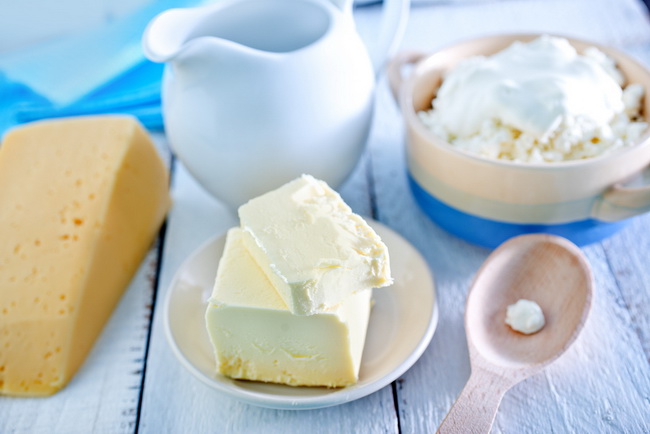
Photo credit: bigstock.com
5. Butter
Delicious, creamy, smooth butter has been blamed for everything from heart disease to obesity to your mother-in-laws one-month visit.
The truth is butter had nothing to do with your mother in law, nor did it have anything to do with your love handles. Well, as long as you ate the right kind!
Margarine is full of ugly stuff that does not belong in your body. This makes completely natural butter the logical choice. You need to choose butter from grass fed cows, however, as this will have a major impact on the nutritional makeup of your butter.
Butter that is made from grass fed cows is rich in vitamin K2, which is important for our heart health as well as our bone health. Real butter also contains that CLA we mentioned earlier. Don’t forget that CLA has been shown in studies to reduce body fat and increase your lean muscle mass. If that isn’t a great reason to eat butter right there, what is?
SEE ALSO: This One Dried Fruit Can Help Build Stronger Bones
In a recent review of more than 15 studies, the consumption of butter was not found to cause any source of harm, no increased rates of metabolic disease, and no increased rates of heart disease or obesity.
So don’t be afraid of sweet, creamy butter. Just be sure you get it from grass fed cows and you are good to go. Make things easy on yourself, ask your mother-in-law to bring you some.
References:




























